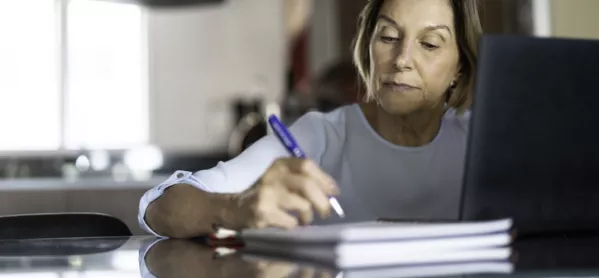It’s been heart-warming to see companies and communities coming together to ensure that children have the technology available to them to study remotely through lockdown. Even the BBC has got in on the action. But what about the adults who need the same?
Much has been written about digital poverty, with many adults being left behind when it comes to job opportunities, job hunting or simply avoiding isolation. The pandemic and social-distancing legislation has really brought that divide into stark relief.
At the Workers’ Education Association (WEA), we’ve seen some students struggle to make the leap to online learning, whether because of a lack of kit, connectivity or simple know-how and confidence.
News: FE White Paper to simplify adult education funding
More: ’It’s simple - adult education needs more funding’
Long read: Meet Simon Parkinson, the man fighting for adult education
At the sharp end of the digital divide
We’ve also felt the pain of students who have faced redundancy and furlough, many of them being in lower-paid jobs and already living pay cheque to pay cheque.
Those in lower-paid jobs have been at the sharp end of the digital divide, as their work is most likely to be at threat because of automation, and yet they are also least likely to have the skills that could enable them to stand out in an increasingly competitive job market.
This situation is creating additional financial pressure and a desperate need for training to help those with low skills or who are unemployed stand out as the candidate of choice in an ever-increasing and competitive crowd.
In response, we have worked with our funders in the Scottish Government, Greater Manchester and London Mayoral Combined Authorities, and others, to purchase tablets for students and have then provided the support to get them online so they can access our courses. We’ve also worked with our corporate partners, Lloyds Banking Group, to provide similar access.
However, we need to do much, much more to meet the need.
When will adults receive the support?
But, even when you have the kit, you need the connectivity. When I attended the education select committee, I called on the broadband providers to share some responsibility for supporting the disadvantaged with wi-fi access free of charge. I’m pleased to see that they have stepped up in recent months to support school-aged children.
The question is, once the urgent need for disadvantaged children has been addressed by corporates, charities, broadband providers and the BBC, will they then turn to support the adults who need education to advance their chances?
Or simply, they might want to enable the isolated to connect with others while we are constrained by social-distancing measures. The mental health impact is significant.
If their answer is yes, we encourage them to get in touch with the WEA. We can help them make a difference to adults who need to learn.
In the meantime, we are fundraising to be able to provide more tablets, unlimited data SIMs and practical digital training to those who need it in order to pursue their learning ambitions, connect with the like-minded - and the jobs that might follow.
Simon Parkinson is chief executive of the WEA




